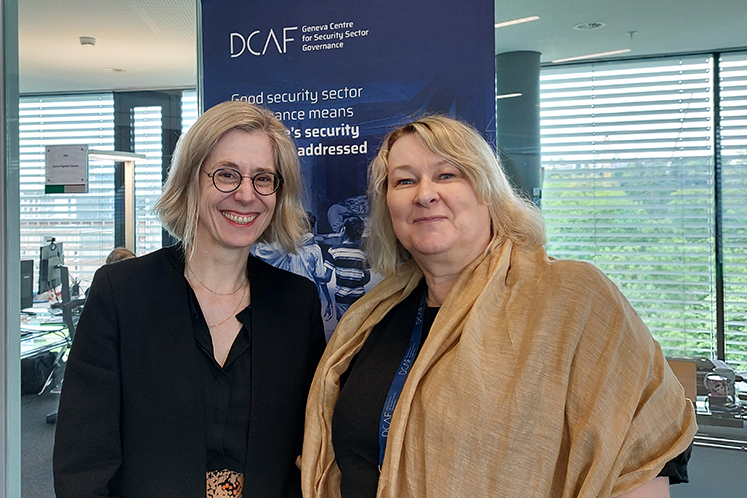Farewell reflections from DCAF’s outgoing Foundation Council President
After four years serving as President of DCAF’s Foundation council, Kirsi Henriksson is handing over the reins as she takes up a new role as Deputy Managing Director of Civilian Planning and Conduct Capability at the European External Action Service (EEAS). What has defined her mandate, and how does she see DCAF going forward?
I cannot even think about the concept of SSR without thinking about DCAF.
– Kirsi Henriksson
The President serves as a strategic advisor and a valuable "sounding board" for DCAF’s Director on matters of importance. The President chairs DCAF’s supreme body - the Foundation Council composed of 40+ representatives of states - and plays a leadership and oversight role that is critical for good governance and garnering international support for DCAF’s work.
Henriksson’s mandate was marked by big challenges from the start. The first year coincided with the onset of COVID and the chaos and increased pressure on security sectors around the world. Since then, Russia’s war of aggression against Ukraine has brought conflict back to Europe, the Sahel region has witnessed several coups d’état, and in 2023, the war in Gaza, set off by Hamas’ attack on Israel, has dramatically heightened tensions in the Middle East and beyond.
These conflicts, alongside fluctuating global geopolitics, rising nationalism, growing inequality, and democratic backsliding have had profound implications on global security and presented a significant stress test for governments and multilateral organizations, especially when working on security sector reform and good governance.
“Governments and multilateral organizations have had to become more flexible and engage with more diverse types of security sector actors. Is the international community doing the right things, in the right way?” said Henriksson. For her, it is important to keep asking this question because the ability to cope with the pace of change is crucial to continued success.
Now working with the European Union, she appreciates that organizations like DCAF can adapt to situations much faster than big multilateral actors. “This is difficult to achieve, especially in conflict zones, but essential as we have to keep working somehow,” said Henriksson.
During her mandate Henriksson also came to appreciate DCAF’s close ties to the day-to-day reality of SSG/R on the ground and understanding of the reality of people’s local security and justice needs.
“Making the link between this, and policy makers at the national and international levels is essential to ensuring that donor states and multilateral organizations such as the European Union put people’s needs at the centre of peace and security discussions and arrangements,” she said. It’s also key to building and nurturing trust with partners, which is fundamental to achieving peace and setting the conditions for development.

Photo: Kirsi Henrikson and DCAF’s Director Nathalie Chuard. Photo: DCAF.
Kirsi’s years of experience, both in the field and at the policy making level, have been instrumental in helping DCAF meet the challenges of the last few years. It has been an honour to work with her since I joined DCAF.
- Nathalie Chuard
The incoming President will join in June, not long before DCAF’s new 2025-2029 Strategy. Henriksson advises the new President to share his/her expertise alongside DCAF’s in-house experts and take an active role in maintaining the organization’s position as a global leader in SSG/R.
DCAF is a beacon of security sector reform for all of us.
– Kirsi Henriksson
We are grateful for President Henriksson’s dedication, her personal support and many contributions to DCAF. We benefited from her wealth of experience and ability to ask the rights questions at the right time, and drive our thinking to be rigorous and innovative.
We are really happy she did not become an archaeologist after all and wish her all the best for the future.
 Share on Facebook
Share on Facebook Share on Linkedin
Share on Linkedin Share on Twitter
Share on Twitter